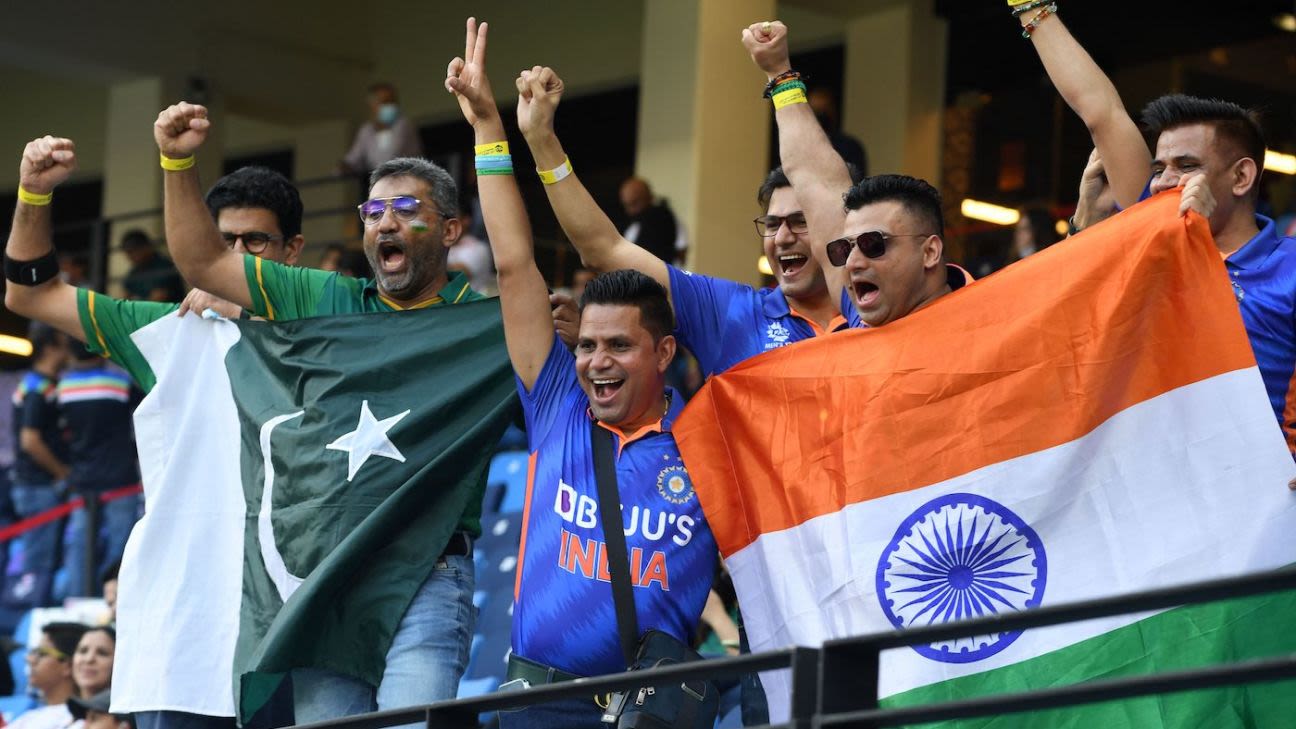 |
|
The highly anticipated Champions Trophy 2025 is set to witness a clash of cricketing titans: India versus Pakistan. This pivotal match, scheduled for February 23rd, will take place in the United Arab Emirates (UAE), a decision finalized after negotiations between the Pakistan Cricket Board (PCB) and UAE officials. The agreement signifies a significant step in navigating the complex geopolitical landscape surrounding these two nations' cricketing rivalry. The choice of the UAE as a neutral venue reflects the ongoing efforts to ensure the safety and smooth conduct of high-profile matches involving India and Pakistan. The political sensitivities surrounding these matches are well documented; playing these matches in a neutral territory offers a buffer against potential disruptions or security concerns, enabling the focus to remain firmly on the sporting contest itself. This arrangement ensures a fair and unbiased playing field, a crucial aspect for maintaining the integrity and appeal of the tournament.
The decision to hold India's Champions Trophy matches in the UAE was not unexpected. Given the strained political relations between India and Pakistan, the need for a neutral location has long been anticipated. The meeting between Mohsin Naqvi, the PCB chairman, and Sheikh Nahyan Al Mubarak, a senior UAE minister and head of the Emirates Cricket Board, finalized this widely predicted arrangement. The UAE's experience in hosting major international sporting events, its well-developed infrastructure, and its neutral geopolitical stance make it an ideal choice for mitigating potential risks associated with holding matches between these two nations. The careful planning and logistical considerations that have gone into this selection reflect the seriousness with which both the PCB and the ICC approach the challenge of organizing this politically sensitive yet highly anticipated sporting event. The success of the tournament relies heavily on smooth organization and neutral venues.
The Champions Trophy 2025 schedule reveals a hybrid model. While the UAE will host India's matches, the majority of games featuring other teams will take place within Pakistan. This arrangement, reached through mutual agreement, is a significant concession from both sides. The decision to hold India's matches in a neutral venue is mirrored by a reciprocal agreement ensuring that Pakistan's matches at ICC events hosted by India until 2027 will also be played in neutral locations. This reciprocal arrangement demonstrates a commitment to fair play and the avoidance of any potential home-ground advantage for either team. This showcases a commitment to navigating the complexities of international relations while preserving the essence of sporting competition, ensuring that the political climate doesn't overshadow the cricketing spectacle. This compromise underlines the importance of safeguarding the integrity of the tournament, fostering mutual respect, and ensuring that the global audience can enjoy the matches without any concerns about political disruption.
The hybrid model extends to knockout stages, with semi-finals and the final also taking place at neutral venues unless specific circumstances dictate otherwise. Should India reach the semi-final or final, these crucial matches will be held in the UAE. If India fail to qualify, the matches will instead be held in Pakistan. The final, initially slated for Lahore, has a provision for relocation to the UAE should India make it to this stage. This flexible arrangement safeguards the tournament's integrity and addresses potential security concerns while upholding the spirit of fair play. The logistical complexity of such an arrangement is considerable, demanding careful coordination and planning between all stakeholders, including the participating nations, the ICC, and the host venues. This careful planning and management of the hybrid model speaks volumes about the commitment to delivering a successful Champions Trophy, prioritizing a fair playing field and avoiding undue political influence on the sporting outcomes.
Beyond the India-Pakistan match, the tournament's schedule is packed with exciting matchups. Pakistan will begin their campaign on February 19th against New Zealand in Karachi. India will play Bangladesh on February 20th and New Zealand on March 2nd, all games likely to be in Dubai. The other group features Afghanistan, Australia, England, and South Africa, with their matches spread across Lahore, Karachi, and Rawalpindi. Semi-finals are scheduled for March 4th and 5th, with the final on March 9th, all with reserve days except for the first semi-final. This tournament promises thrilling cricket across various locations and a culmination of the highest level of competitive sportsmanship. The hybrid model's implementation will be crucial in facilitating smooth and successful matches across various venues, ensuring the integrity and enjoyment of the tournament for players and viewers alike. The anticipation is high, and the cricketing world waits with bated breath for the upcoming clash.
In conclusion, the Champions Trophy 2025 presents a unique challenge and opportunity. The hybrid model adopted to accommodate the India-Pakistan rivalry represents a delicate balance between sporting fairness and geopolitical realities. The successful execution of this model will be a testament to the collaborative efforts of all involved parties. The tournament's significance extends beyond the sporting arena, showcasing the power of sport in fostering diplomacy and showcasing the possibility of cooperation even in the face of political complexity. While cricketing rivalries will undoubtedly intensify on the field, the off-field negotiations and arrangements demonstrate the remarkable ability to find common ground for the benefit of the sport and its global audience.
Source: Champions Trophy: India vs Pakistan on February 23 in UAE
